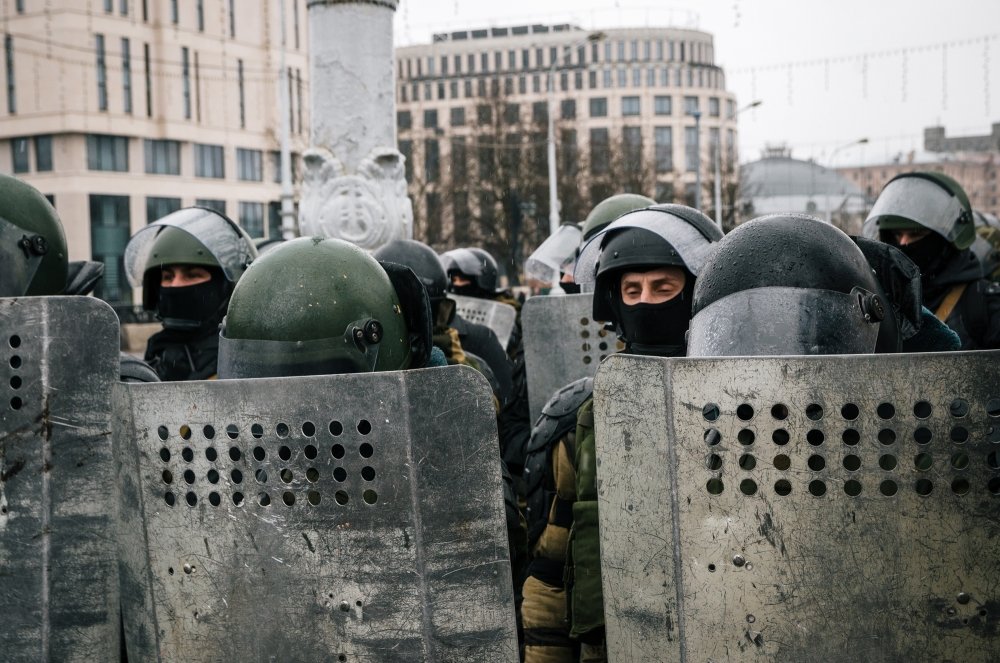In a Confrontation Between Putin and the West, Belarus May Get Caught in the Middle

BY IGOR ZEVELEV
Starting with the coup against Gorbachev in August 1991, the last month of the summer has become a time when the eyes of the world perforce turn to Russia. Financial crises (1998), the start of two major wars (the second Chechen war in 1999 and the Russo-Georgian war in 2008), deadly accidents (the Kursk submarine disaster in 2000 and the major hydroelectric power station episode in 2009), terrorist attacks (in 2004 and 2009), and wildfires (in 2010 and 2019) all happened in August. Will there be a new shock in August 2020?
The biggest danger in the post-Soviet space and in Europe this August is the unfurling of a “Ukraine scenario” in and around Belarus. President Aleksandr Lukashenko, who has ruled the country for twenty-six years, will face the biggest challenge of his political career on August 9, when yet another sham presidential election takes place in Belarus.This time, though, growing discontent fueled by the economic crisis makes the upcoming electoral ritual in Belarus different from all previous ones. The disarray resulting from COVID-19 denial has increased insecurity in the country. Lukashenko initially alleged that there was no virus, just “psychosis,” then suggested that drinking vodka could treat the disease, and then said he himself had recovered from COVID-19.
The Lukashenko regime may lose legitimacy in the aftermath of a rigged vote and following its crackdown on the opposition. Moscow’s mounting pressure on Minsk to effectively give up its sovereignty and reengage the dormant 1999 Union Treaty that called for the unification of Belarus with Russia is exacerbating the potential turmoil. The Kremlin, driven by the same security concerns that shaped its reaction to the revolution in Ukraine in 2014, may intervene amid the political crisis and violence in Belarus.
Russian-Ukrainian relations imploded in 2014 when the revolution in Ukraine was perceived in Moscow as a coup d’état organized by the West on a territory seen by Moscow as its exclusive zone of interest and responsibility—a zone that is central to Russia’s national identity. That is what Putin meant when he proclaimed in 2014, “With Ukraine, our Western partners have crossed the line.”
There is a seemingly irrational amalgamation of national identity narratives and national security concerns in Russia’s perception of both Ukraine and Belarus. The Kremlin sees threats to Russian identity, East Slavic “brotherly unity,” and regional security coming from the West. Ukraine and Belarus are the most important countries among the Soviet successor states for Russia. Despite this, or possibly because of it, relations between Russia and these two countries have been challenging since the Soviet Union’s collapse. Russians have had a difficult time recognizing Belarus and Ukraine as separate nation-states. Overlaps between the cultures, languages, and histories of Russia, Belarus, and Ukraine have led to a confused vision of the boundary between Russians and other Eastern Slavs. In the minds of most Russian intellectuals of the nineteenth century, the “Little Russians” (Ukrainians), “White Russians” (Belarusians), and “Great Russians” (ethnic Russians) were all part of one Russian people. This intellectual tradition outlived the empire and continued to drive both Soviet and post-Soviet Russian narratives.
The leaders of Western countries should keep their eye on one simple task when it comes to Russia: preventing deadly conflict. This task is extremely localized: a clash between the West and Russia could arise in a single specific area, the post-Soviet space. Disagreements over Syria or Libya, the collapsing arms control regimes, Moscow’s meddling in elections in the West, cyber incidents—none of these is likely to lead to open armed conflict, no matter how tense the situation may become. By contrast, a crisis in the post-Soviet space and subsequent misunderstandings and miscalculations in Moscow or in Western capitals regarding the other side’s intentions can escalate in no time. The two major sites of possible conflict have always been Ukraine and Belarus. While violence has already erupted in Ukraine, there is still time for Belarus to avoid the same scenario.
The post–Cold War Euro-Atlantic security order directly affects Moscow’s thinking about Belarus. The US military force posture changes in Europe announced last week are a hodgepodge from the Russian perspective. The removal of American troops from Germany, starting with the return of the Army’s 2nd Cavalry Regiment from Vilseck to the United States, is of course welcomed in Moscow. But the Pentagon is also exploring a significant US military presence in Poland, where it has already rotated troops in recent years. President Trump’s plans to move a forward element of the Army's V Corps’ headquarters to Poland has raised concern among Russian military planners because such a move is viewed as a step toward an eventual permanent deployment of combat units. Any US military presence in Poland, next to the border with Belarus, fuels the Kremlin’s suspicions regarding Western intentions.
In August 2020, however, Moscow’s, not the West’s, policies are a matter of concern in Minsk. We probably will never know the truth about a Russian mercenary group arrested in Belarus last week. The Kremlin has insisted that Russia has no intention of interfering in the Belarusian presidential election, but Lukashenko has accused thirty-three Russians of plotting terrorism and attempting to organize a massacre in the center of Minsk. At the same time, he said that "Russia is afraid of losing us, because, besides us, it has no truly close allies left,” quickly adding, “and the West has recently begun to show an ever more substantive interest in us.”
Belarus has the potential to become a new hotspot in Europe. What starts as a political battle between Russia and the West can easily turn into open armed conflict, if and when it concerns Belarus. To prevent an outbreak of deadly violence in Belarus with the participation of Russian forces, Belarus must not become a new site for Russian-Western geopolitical contestation. Russia does not want Belarus to follow in the footsteps of Ukraine, and neither does the West. Despite all outward appearances, even in the context of mounting paranoia on both sides, this is something both Russia and the West can agree on. Such an agreement can make this August run its course peacefully.
The opinions expressed in this article are those solely of the author and do not reflect the views of the Kennan Institute.
ABOUT THE AUTHOR

IGOR ZEVELEV
Global Fellow;
Former Professor at George Marshall European Center for Security Studies; Former Director, MacArthur Foundation, Moscow Office
READ MOREFormer Professor at George Marshall European Center for Security Studies; Former Director, MacArthur Foundation, Moscow Office

KENNAN INSTITUTE
The Kennan Institute is the premier U.S. center for advanced research on Russia and Eurasia and the oldest and largest regional program at the Woodrow Wilson International Center for Scholars. The Kennan Institute is committed to improving American understanding of Russia, Ukraine, and the region though research and exchange. Read more
No comments:
Post a Comment